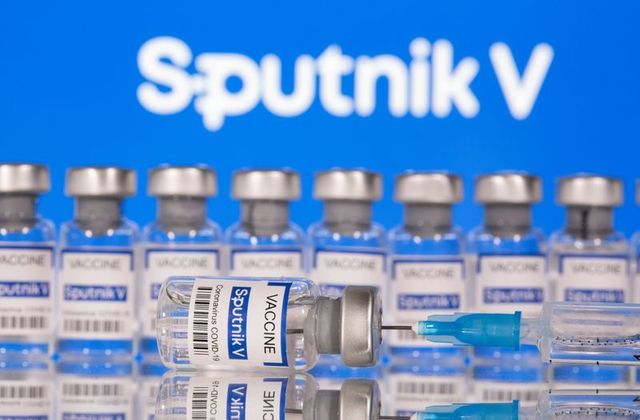Ghana is set to roll out clinical trials for two separate COVID-19 vaccines as it joins global efforts to gather more information on how to defeat the virus.
About 1,500 volunteers will receive at least one full dose of the Russian-made Sputnik Light vaccine or the SANOFI Vaccine in a space of 13 months.
African governments have been largely criticized for their failure to significantly contribute to the campaign to develop vaccines and ensure mass inoculations.
Already similar trials are being run in at least eight other countries including USA, Russia, Egypt and the UAE.
Team Lead for the trials of the Sputnik Light in Ghana, Dr. Alberta Amu said, “if we are able to generate data that shows that the vaccine is efficacious and safe against the virus, it is going to be added to the other two vaccines already in use and hopefully increase vaccine availability in sub-saharan Africa”.
With the current global shortage of vaccines due to vaccine nationalism, Director at the Research and Development Division of the Ghana Health Service, Dr. Abraham Oduro believes Ghana's participation in the advanced clinical trials will better position it to access the jabs when they are ready.
“When you contribute in developing the product, you have a better chance of accessing the vaccine to you either for free or at a cheaper rate.
“Because you are going to compete for the vaccine and you have not participated it is going to be difficult to get them”, he said.
This is coming at a time where scientist have discovered a new and deadly strain of the Delta Variant described as the most contagious Covid-19 variant first seen in India.
Meanwhile, Director of Public Health at the Ghana Health Service Dr. Franklin Asiedu Bekoesays the country is stepping up surveillance at the airport to properly monitor and contain the Delta strain of the virus first seen in India.
About the Delta Virus
The most contagious Covid-19 variant, originating from India, has been recorded in Ghana.
Head of the West Africa Center for Cell Biology and Infectious Pathogens (WACCBIP) of the University of Ghana, Professor Gordon Awendare, confirmed that the Indian variant, also known as the Delta variant, is one of the 45 variants which are currently in Ghana.
The Indian strain has caused huge spikes in India and a serious increase in cases in the UK even though large sections of the population in those countries are vaccinated.
A mutation is elevated from a “variant of interest” to a “variant of concern” (VOC) when it shows evidence of fulfilling at least one of several criteria, including easy transmission, more severe illness, reduced neutralisation by antibodies or reduced effectiveness of treatment and vaccines according to the global health body.
Latest Stories
-
Gold Fields Ghana Foundation challenges graduates to maximise benefits of community apprenticeship programme
1 hour -
GBC accuses Deputy Information Minister Sylvester Tetteh of demolishing its bungalow illegally
2 hours -
Boost for education as government commissions 80 projects
2 hours -
NAPO commissions library to honour Atta-Mills’ memory
2 hours -
OmniBSIC Bank champions health and wellness with thriving community walk
2 hours -
Kora Wearables unveils Neo: The Ultimate Smartwatch for Ghana’s tech-savvy and health-conscious users
2 hours -
NDC supports Dampare’s ‘no guns at polling stations’ directive
2 hours -
Police officer interdicted after video of assault goes viral
2 hours -
KNUST’s Prof. Reginald Annan named first African recipient of World Cancer Research Fund
2 hours -
George Twum-Barimah-Adu pledges inclusive cabinet with Minority and Majority leaders
3 hours -
Labourer jailed 5 years for inflicting cutlass wounds on businessman
3 hours -
Parliament urged to fast-track passage of Road Traffic Amendment Bill
3 hours -
Mr Daniel Kofi Asante aka Electrician
3 hours -
Minerals Commission, Solidaridad unveils forum to tackle child labour in mining sector
3 hours -
Election 2024: Engagement with security services productive – NDC
3 hours

